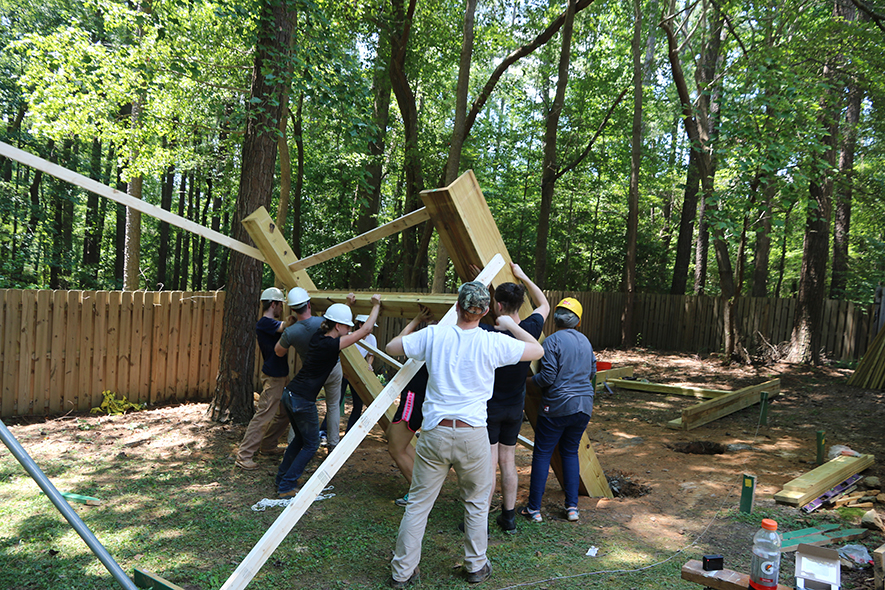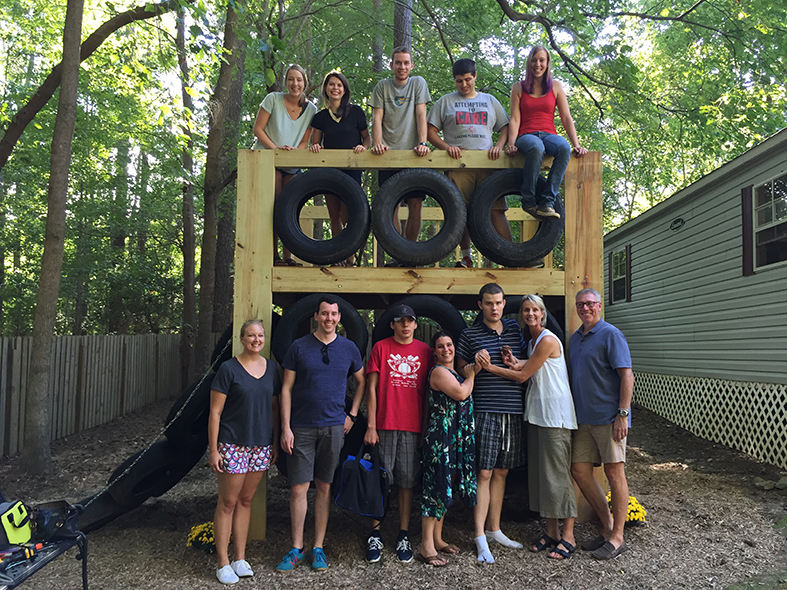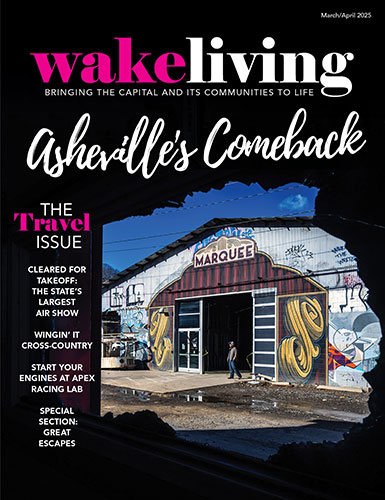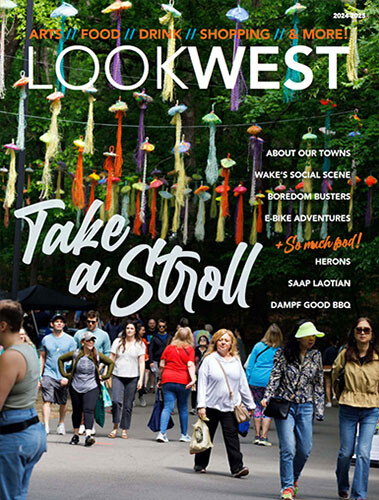Donate: To broaden the scope of programs, and help open more homes.
Volunteer: Work on the house, or pitch in on fundraisers.
Call: To learn how you can open a home for someone you love.
Hannah Ellis of Cary is proof that necessity is the mother of invention.
When her son, Sam, aged out of North Carolina’s residential program for children with autism, located in Butner, she found no housing options for him as an adult.
“There are very few residential programs, and some have eight- to 10-year waiting lists. We just couldn’t find any openings in North Carolina,” she said.
So Ellis took action to create a home for Sam and others: She founded Living With Autism, navigating the state regulations process for group homes and earning a license through the Division of Health Service Regulation.
She bought a house on the outskirts of Cary and hired round-the-clock care staff, teaming with doctors, nurses, behavioral psychologists and case managers to meet the residents’ educational and medical needs.
Now Sam and his housemates, ages 18 through 21, wake up each morning in their permanent home. All three are students at local high schools, who enjoy afterschool bouncing at an indoor trampoline park, and hanging out in their rooms with their iPads.
“A typical situation for everyone else, like having an X-ray at the dentist, can make a person with autism nervous and scared,” said group home manager Cathy Newton. “But our job is to get them out of their own worlds.
“We do chores. We get out in the community and do active things at the lake or park. They love going out to eat, and they learn how to behave in public … we cover all aspects of life.”
Working with autistic adults, especially one who is nonverbal like Sam, is challenging, says Newton.
“You need the right balance of love and firmness, consistency, patience and understanding. But they know we have their best interests at heart. They know I’m their safety. The reward is their eye contact, and watching them succeed. It’s the most amazing thing in the world.”

AIAS FBD team members construct an adult-sized play structure for residents of the Living With Autism group home.
N.C. State architecture students made their mark on Living With Autism’s first group home, donating the design and installation of a multi-faceted structure for its residents, to encourage outdoor play.
Tailored to the young men’s interests, it features a tire ramp, climbing and throwing wall, tractor tire swing, and a platform for reflective thought.
“This is not a kids’ playground,” noted Gabby Seider of Cary, an NCSU graduate student and director of the school’s Freedom by Design group. “Two of the ‘boys’ are over 6 feet tall and over 200 pounds, so the scale of the build is bulked up. It’s solid.”
After five months of meetings with Living With Autism staff to hammer out details, the students built the structure over five Saturdays.
“For us it was special,” Seider said. “Being able to reach out to Living With Autism was a fantastic, positive experience, and we feel fortunate to have worked with them on a real-world project.”
See a video of the build at youtube.com/watch?v=306QzwUonzo.
The bigger picture
Autism Spectrum Disorder is the second most common developmental disability, following intellectual disability. Much of the focus in autism has been on early diagnosis and treatment, but now young adults like Sam are aging out of the programs created to help them.
“Housing is the biggest problem in autism right now,” Ellis said. “I talk to parents every day in the same situation.”
Statistics back her up — 87 percent of adults with autism live with their families, and over the next decade another half-million people with autism will become adults.
Ellis and the Living With Autism board are pursuing grant money to open a second, and possibly third, group home.
“We could fill 100 homes right now,” she said. “Most parents don’t think of opening a group home as an option, but we’ve been able to help families around the state. It’s not easy, but you can do this. And it’s neat to be able to give back and take care of your own child in the process.”
Funded primarily through the North Carolina Medicaid Program, Living With Autism Inc., also needs local donations to operate, and hosts an annual golf tournament fundraiser.
Ellis even ran a gift shop, Violets, to help fund the organization, but sold the shop to focus full time on helping families impacted by the housing crisis.
Things will change again for Sam when he turns 22. That’s when students age out of high school, and state educational offerings cease. Ellis and Newton are working to find, or create, quality day programming for Sam and the others, and are exploring vocational options.
“Parents want their children to be individuals, to be accepted for who they are. We want the same for our children: a happy, safe environment where they can do good things, and have the chance to be giving adults,” Ellis said. “We look at their strengths; they have so much to offer.”
To learn more, visit living-with-autism.com.






